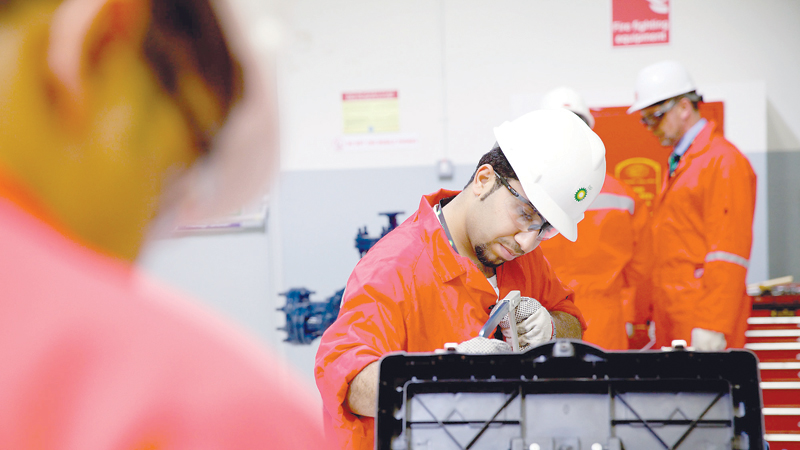

Oman’s Ministry of Oil and Gas is weighing plans for the introduction of a new category of openings for young Omanis eager to begin their professional careers in Oil & Gas companies.
The proposal, which is still subject to approval, calls for the creation of so-called ‘Developmental Positions’ within contracting companies and earmarked exclusively for Omani interns, according to a high level official of the ministry.
The concept of Development Positions, according to Salim bin Nasser al Aufi (pictured), Under-Secretary, will help address the common challenge faced by many young graduates: how will they get any experience if they are never employed.

“When a contractor is awarded a contract, they provide an Omanisation plan relevant to that contract. But in addition, they will also have to set aside dedicated positions for Omani trainees under the new proposal. This allows the interns to gain some experience for a year or two or three. So when they emerge from that contract, they will have some experience as well,” the official explained.
Speaking to OPAL Oil & Gas, which is produced in collaboration with the Observer, Al Aufi said the potential for employment creation based on the new concept is promising.
“If we even have one Development Position for each of the estimated 400 contracts that are awarded in a given year, we can secure jobs for 400 young Omanis. But the potential is far greater, particularly when some contracts employ 2,000, 3,000 or 5,000 people.
Although these Development Poitions are employment contracts in themselves, they offer full exposure to the interns. Ultimately, it gives the employer the option of hiring them, if the already trained individuals do not walk away in pursuit of some better opportunity. Regardless, the young Omanis will at least have some years of experience to boost their employment appeal,” he stated.
The move is part of a concerted effort by the ministry to support Omanisation in the Oil & Gas sector on a sustainable basis.
The industry was among the first sectors to deliver on its pledge to contribute 5,000 positions in response to His Majesty the Sultan’s call for the creation of 25,000 jobs for Omani nationals last November.
The lion’s share came from oilfield contractors through concrete commitments to replace expatriate workers with suitably trained nationals in a time-bound fashion.
Further job creation based on a replication of this approach is not viable over the long-term, according to Al Aufi.
“We have said right from the beginning that such initiatives in employment generation are not a sustainable model. It can be achieved once or perhaps twice, but the sustainable way forward is to plan ahead.”
Planning for Omanisation can be undertaken in two ways, the Under-Secretary noted.
Firstly, new Omanis graduates are recruited, trained and developed to take on positions within a company either when existing national employees resign or retire, or to replace expatriates. Secondly, positions may be created at the entry level for young Omani job-seekers.
To curb any loopholes that may allow for expats to be recruited without reasonable justification, the Ministry of Oil & Gas has begun studiously examining all requests for labour permits.
“An operator or contractor seeking a clearance for an expatriate needs to assure us that they looked very thoroughly within the Omani market for an Omani potential candidate to take the position – experienced or new hires hire,” said Al Aufi. “It’s only when they genuinely try and fail to find an Omani will be allow them to bring in an expat for whatever the agreed period is.
This is on the condition that we would like to see an Omanisation succession plan, which may include taking some Omanis as fresh recruits, and training and developing them fully to take on those very positions when the expats are ready to leave the company. So we are emphasizing to contractors that they simply cannot ask for work permits and forget about Omanisation.”
Oman Observer is now on the WhatsApp channel. Click here



